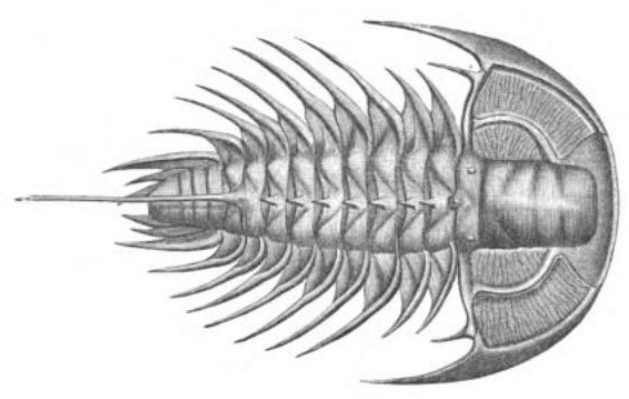Never Say That… !

“The idea, then, which I form of the progress of organic life upon the globe—and the hypothesis is applicable to all similar theatres of vital being—is, that the simplest and most primitive type, under a law to which that of like-production is subordinate, gave birth to the type next above it, that this again produced the next higher, and so on to the very highest, the stages of advance being in all cases very small – namely, from one species only to another…”
Did you recognize the quote above? If you did, you get a gold star. You may keep the gold star if you can also name the source. Take a moment before continuing on.

Did you say “Charles Darwin”? If so, I am very sorry, but I have to ask for the gold star back. It wasn’t Charles Darwin. It was Robert Chambers. If you’ve never heard of Robert Chambers, he was the anonymous author who wrote Vestiges of the Natural History of Creation. Published in 1844, the book made quite a splash and was a best seller for a variety of reasons. It was also considered dangerous. And sacrilegious. The book’s materialist stance on the world, its creation, and the fact that animals evolved negated the need for a Creator. It’s why Robert Chambers chose to remain anonymous when it was first published and for many of its subsequent editions. It was until 1884, thirteen years after his death and the book’s 12th edition, that his identity was finally revealed.
If you’ve been paying attention, you may have caught the date of its publication. 1844. What’s so special about the date? Robert Chambers’s book about evolution came out fifteen years before Darwin’s. Its controversial content, as well the heated debates it caused, upset Darwin. The public wanted to know the identity of the villain who wrote it. Darwin, too was working on a theory he called “descent with modification”. He also pursued and searched for the mechanism for why modifications occur. As much as he enjoyed Vestiges, it caused him to pause for a very long time to consider how his own thoughts on the subject might one day be received.
Darwin had another problem with the book outside of its reception. It’s right there in the quote I opened this article with. Or, more directly, Darwin’s issue was with a word. The word “higher”. Chambers uses the word constantly throughout his book to explain that life evolves to a “higher” state of being.
“The mammifer only passes through still more stages, according to its higher place in the scale.” – Robert Chambers
I counted 47 instances of the word “higher” in his book, most of which referred to the progression of animals from lower stages to higher stages. Chambers places man at the top of the scale (unlike Aristotle, who would place the angels and God above it all). Chambers even included a diagram to show life’s progression from lower forms “A” to the higher mammalian forms “M”.

Darwin’s issue with the words “higher” and “lower” is he found it patently wrong. A fox is neither a “higher” nor a better organism than a frog. The fox simply evolved into its present form because of its environment. The slight mutations and modifications its ancestors underwent enabled them to live long enough to reproduce. Further generations of offspring also underwent slight changes. Some changes were harmful, and others were beneficial. Fortunately, for the fox in its present form, they were advantageous. So too were those changes the frog’s ancestors went through. There’s nothing better or higher about them. They just are the way they are.
I have read that Darwin scribbled in the margins of his copy of Vestiges “never say higher or lower”. I haven’t yet been able to confirm this, but I can point to a line in one of his notebooks from 1838…
“It is absurd to talk of one animal being higher than another. We consider those, where the intellectual faculties most developed as highest.” – Charles Darwin
Well said, Charles.
